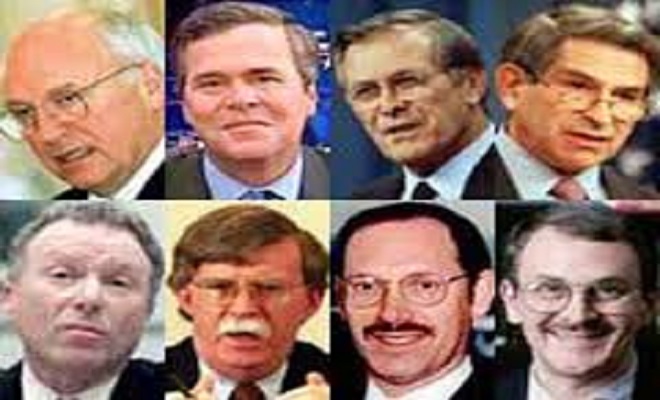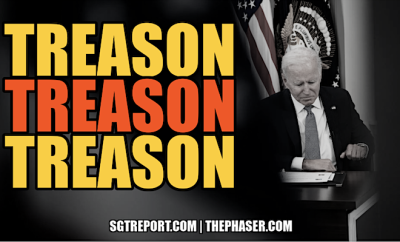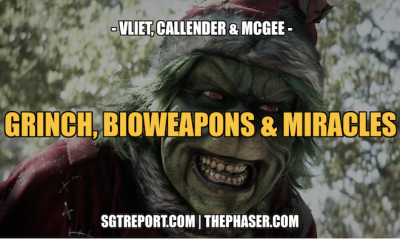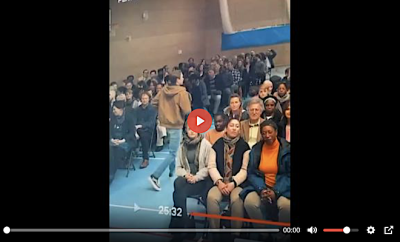 People involved in the 2000 PNAC report include Vice President Cheney, Florida Governor Jeb Bush, Defense Secretary Rumsfeld, Deputy Defense Secretary Paul Wolfowitz, Cheney Chief of Staff Lewis “Scooter” Libby, UN Ambassador John Bolton, Image Credit: HistoryCommons.org
People involved in the 2000 PNAC report include Vice President Cheney, Florida Governor Jeb Bush, Defense Secretary Rumsfeld, Deputy Defense Secretary Paul Wolfowitz, Cheney Chief of Staff Lewis “Scooter” Libby, UN Ambassador John Bolton, Image Credit: HistoryCommons.org
Uncategorized
Corporate Media Doublethink and the Bush-PNAC-9/11-Iraq Connection
by Prof. James F. Tracy, Global Research.ca:
“Doublethink,” George Orwell famously remarked, “means the power of holding two contradictory beliefs in one’s mind simultaneously, and accepting both of them.”
The corporate news media similarly tend toward selective recall when approaching and interpreting crucial facts of national and world history. A recent example involves John Ellis “Jeb” Bush’s tentative May 10 admission that he would not have embarked on the disastrous invasion and occupation of Iraq had he possessed the information that his brother’s presidential administration willfully kept from the American public.
In fact, such information is but one small facet in an edifice of high crimes and subterfuge, including the George W. Bush regime’s complicity in the false flag terror attacks of September 11, 2001, or what one might otherwise term the Bush-PNAC-9/11-Iraq connection.
In the midst of controversy surrounding Jeb Bush’s acknowledgement, major news media almost uniformly chose to toss the elder Bush brother’s involvement in the neoconservative Project for a New American Century as a signatory to its “Statement of Principles” down the memory hole.
As many will recall, PNAC’s 2000 document, “Rebuilding America’s Defenses,” issued one year before the September 11 events, proclaimed how “the process of [foreign policy] transformation, even if it brings revolutionary change, is likely to be a long one, absent some catastrophic and catalyzing event – like a new Pearl Harbor.”
“A SECRET blueprint for US global domination reveals that President Bush and his cabinet were planning a premeditated attack on Iraq to secure ‘regime change’ even before he took power in January 2001,” Neil Mackay observed in the Scottish Sunday Herald on the first anniversary of 9/11.
The blueprint, uncovered by the Sunday Herald, for the creation of a ‘global Pax Americana’ was drawn up for Dick Cheney (now vice-president), Donald Rumsfeld (defence secretary), Paul Wolfowitz (Rumsfeld’s deputy), George W Bush’s younger brother Jeb and Lewis Libby (Cheney’s chief of staff). The document, entitled Rebuilding America’s Defences: Strategies, Forces And Resources For A New Century, was written in September 2000 by the neo-conservative think-tank Project for the New American Century (PNAC).
The plan shows Bush’s cabinet intended to take military control of the Gulf region whether or not Saddam Hussein was in power. It says: “The United States has for decades sought to play a more permanent role in Gulf regional security. While the unresolved conflict with Iraq provides the immediate justification, the need for a substantial American force presence in the Gulf transcends the issue of the regime of Saddam Hussein.”
The PNAC document supports a ‘blueprint for maintaining global US pre-eminence, precluding the rise of a great power rival, and shaping the international security order in line with American principles and interests’.
This “American grand strategy” must be advanced for “as far into the future as possible”, the report says. It also calls for the US to “fight and decisively win multiple, simultaneous major theatre wars” as a “core mission”.
The historical amnesia is evident in a LexisNexis search for “Project for a New American Century” and “Jeb Bush” that yields almost no mention in print news media of the eerily prophetic, even incriminating document in the overall coverage of Bush’s admittance.
Cable news channel MSNBC was the only news outlet to (unintentionally) link PNAC to Bush’s disclosure. The reference was made by Salon.com‘s Joan Walsh on the May 14 segment of Chris Matthew’s Hardball program. The exchange is prefaced by Matthews’ remark concerning Bush’s difficulty distinguishing “himself from the ideology that took us into Iraq.”
During an exchange between Matthews, Walsh, Buzzfeed‘s McKay Coppins, and The Nation‘s Ben Goldberger concerning Bush’s present slew of “neocon” foreign policy advisors, Matthews curiously feigns ignorance of Bush’s PNAC involvement.
JEB BUSH (R), FORMER FLORIDA GOVERNOR: We were all supposed to answer hypothetical questions. Knowing what we know now, what would you have done? I would have not engaged, I would not have gone into Iraq.
(END VIDEO CLIP)
MATTHEWS: I would not have gone into Iraq. It took [Bush] a while to say that … McKay, tell me why he`s had this hard time to separate himself from the ideology that took us into Iraq.
COPPINS: Well, it`s — I have a story coming out tonight where I talk to a half dozen former George W. Bush officials, neocon hawks, very pro- Iraq war at the time and still are. And they breathe two issues. One — I mean, it`s obvious that there`s still a lot of pressure from neoconservatives and Iraq hawks who don`t want him to, you know, wholly disown the Iraq [sic].
The other issue is that they — and they were all asking this question, when he was asked, you know, to put out a list of his foreign policy advisers, he came out this lengthy, kind of unwieldy list of 24 policy advisers — [sic]
MATTHEWS: But it had a few hard rights in it.
COPPINS: It had a lot of neoconservatives. And actually, I`m told that he had to scramble at the last minute to add people from the new generation. Initially, it was all –
MATTHEWS: So, what do you think he is? Do you think he`s his brother or his dad?
COPPINS: I think he`s probably, in his heart, angling more toward his dad, but I think there`s still many political pleasures within his party and, frankly, familiar pressures to not disown him.
MATTHEWS: The weird about [sic] this is the father/son thing?
WALSH: Yes, to both of them.
MATTHEWS: He railed against his father. We all know W. was the rebel, in a way that may have sort of led us into the war. We don`t know this psychological stuff.
WALSH: Right. We can`t get inside his brain.
But I mean, I think you`re making a great point. This may well be what he thinks. We don`t know what he thinks. But he was an early signatory to the project for a new American century document.
MATTHEWS: “W” was?
WALSH: No. Jeb was. Jeb was.
There are a lot of people in his orbit. Dick Cheney never said he made a mistake. They would do it all over again. They knew that WMD was a pretext in the first place.
MATTHEWS: Whose sales speech, Ben? It`s going to be an issue in the campaign. It`s the reason that Barack Obama is president over Hillary Clinton. We all know that central fight that he had, she wasn`t willing to push away the war issue. He was. He was clean [Emphasis added].
The almost complete erasure of the Bush-PNAC-9/11-Iraq connection in the broader public discourse surrounding Bush’s admission may seem like yet another short-lived episode in US politics. Yet the omission demonstrates a type of censorship that is now at least as ideological as it is deliberate, particularly among professional journalists who tacitly recognize their roles in the political censorial process. “To know and not to know,” Orwell noted,
to be conscious of complete truthfulness while telling carefully constructed lies … to forget whatever it was necessary to forget, then to draw it back into memory again at the moment when it was needed, and then promptly to forget it again: and above all, to apply the same process to the process itself.
Upon over a half century of unexplained political assassinations and phony wars on communism, drugs, and now “terror,” Western political leaders today appear scarcely interested in even explaining their policies, frequently because of the willful historical shorthand practiced by the journalistic institutions dependent on upholding the same political and ideational bulwark.
Overlooking the Bush-PNAC-9/11-Iraq connection requires an informational system akin to that of 1984; one committed to a relentless forgetting of the inner party’s profound criminality.
Read More @ Global Research.ca












